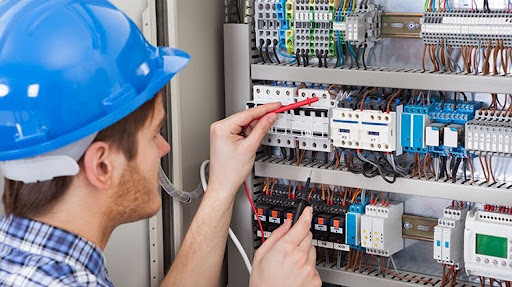Securing DEWA Approvals is essential for any electrical project in Dubai, whether it’s for residential, commercial, or industrial purposes. The Dubai Electricity and Water Authority (DEWA) maintains strict guidelines to ensure the safety, reliability, and efficiency of electrical installations. Failing to meet these standards can lead to costly project delays or outright rejections. Understanding the most common violations that can derail your DEWA approval process is crucial to ensuring compliance and a smooth inspection. This article will highlight some frequent mistakes and offer advice on how to avoid them.
1. Improper Electrical Design
One of the leading causes of rejection during the DEWA approval process is an improper electrical design that fails to meet the authority’s stringent guidelines. Electrical systems should be designed to accommodate both current and future energy needs, considering factors such as load capacity, wiring, and circuit protection.
Failure to account for the total load that the electrical system will handle often leads to unsafe installations and inefficiencies. A common error in smaller projects is underestimating the energy requirements, leading to an overloaded system that can’t cope with future expansions. This violates DEWA’s safety standards and can result in the project being rejected for approval.
2. Using Non-Compliant Materials and Equipment
Another major violation involves using electrical materials and equipment that do not meet DEWA’s approved standards. For example, using substandard wires, switches, or transformers can create significant safety hazards, including short circuits, power surges, or even electrical fires. All electrical equipment used in the project must be DEWA-approved and must meet international safety standards, such as IEC (International Electrotechnical Commission) or BS (British Standards).
Contractors often make the mistake of sourcing cheaper, non-compliant materials to cut costs. However, this can backfire during the inspection process, as DEWA inspectors will check whether all materials and equipment comply with their safety regulations.
3. Improper Grounding and Bonding
Grounding and bonding are crucial components of any electrical installation. Improper grounding is a common violation that can lead to electrical shock hazards and the risk of fire. DEWA requires that all systems be properly grounded to prevent these risks and to ensure the safety of the electrical system.
Bonding refers to the connection of all metal parts of the electrical system to create a unified ground path. If not done correctly, there could be a higher risk of short circuits or equipment failure. To avoid these violations, it is essential to follow DEWA’s specific grounding and bonding guidelines, ensuring the system can handle any fault conditions that may arise.
4. Overloaded Circuits
Overloading circuits is a frequent mistake in electrical installations, especially in older buildings where the electrical infrastructure has not been upgraded to meet modern energy demands. Circuits should be appropriately designed to manage the load required by the building, and using circuits that are not up to capacity is a violation of DEWA’s regulations.
Inadequate load distribution can lead to frequent tripping of circuit breakers, overheating, and potential electrical fires, all of which are serious safety hazards. DEWA-approved electrical contractors must conduct a thorough assessment of the load requirements and design the system accordingly to prevent circuit overloading.
5. Incorrect Wiring Installation
Incorrect or unsafe wiring is a major concern in electrical projects. Whether it’s using the wrong gauge of wire for the load or incorrect wiring methods, these issues are often flagged during DEWA inspections. Improper wiring can lead to overheating, which may cause electrical fires, malfunctions, and overall inefficiencies in the system.
To prevent this, always ensure that wiring installations are in compliance with DEWA-approved electrical services in Dubai. This includes adhering to the correct wire sizing, insulation methods, and routing to minimize the risks of electrical faults.
6. Lack of Proper Documentation
Failure to submit the necessary documentation during the DEWA approval process is another common issue. Every electrical project requires a range of documents, including detailed electrical designs, load calculations, material specifications, and certifications for the equipment used.
Not having this paperwork in order can significantly delay your approval, as DEWA needs this information to assess whether the installation meets their standards. It’s important to ensure that all the required documentation is complete and accurate before submitting your project for approval.
7. Failure to Conduct Regular Inspections
Even if your initial installation is up to DEWA standards, failure to conduct regular inspections can result in non-compliance over time. Electrical systems degrade, and parts may become unsafe if they are not regularly maintained. Contractors and building owners should ensure that regular maintenance and inspections are conducted, especially before submitting the project for DEWA approval.
By conducting frequent checks, you can identify any potential violations early and fix them before they become major issues during the DEWA inspection process.
8. Non-Compliance with Safety Protocols
Lastly, failure to adhere to the safety protocols mandated by DEWA is a significant violation. This includes not only ensuring that the installation is safe but also making sure that the project site adheres to health and safety regulations during the installation process.
For instance, if workers are not following the appropriate safety guidelines, such as using protective equipment or maintaining safe working environments, it could lead to an automatic failure during the DEWA inspection.
Conclusion
Understanding and avoiding these common electrical violations can save you both time and money when seeking DEWA Approvals. By ensuring proper design, material selection, installation techniques, and maintenance practices, you can streamline the approval process and reduce the likelihood of costly project delays.
When selecting contractors, always opt for those offering DEWA Approved electrical services in Dubai, as they are more likely to be familiar with the regulations and best practices required by DEWA. Regular maintenance, including electrical Replacements service, will also help maintain compliance and extend the life of your electrical systems.
By staying informed and proactive, you can ensure your project meets DEWA’s standards from the outset, ensuring a smoother approval process and long-term operational efficiency.






